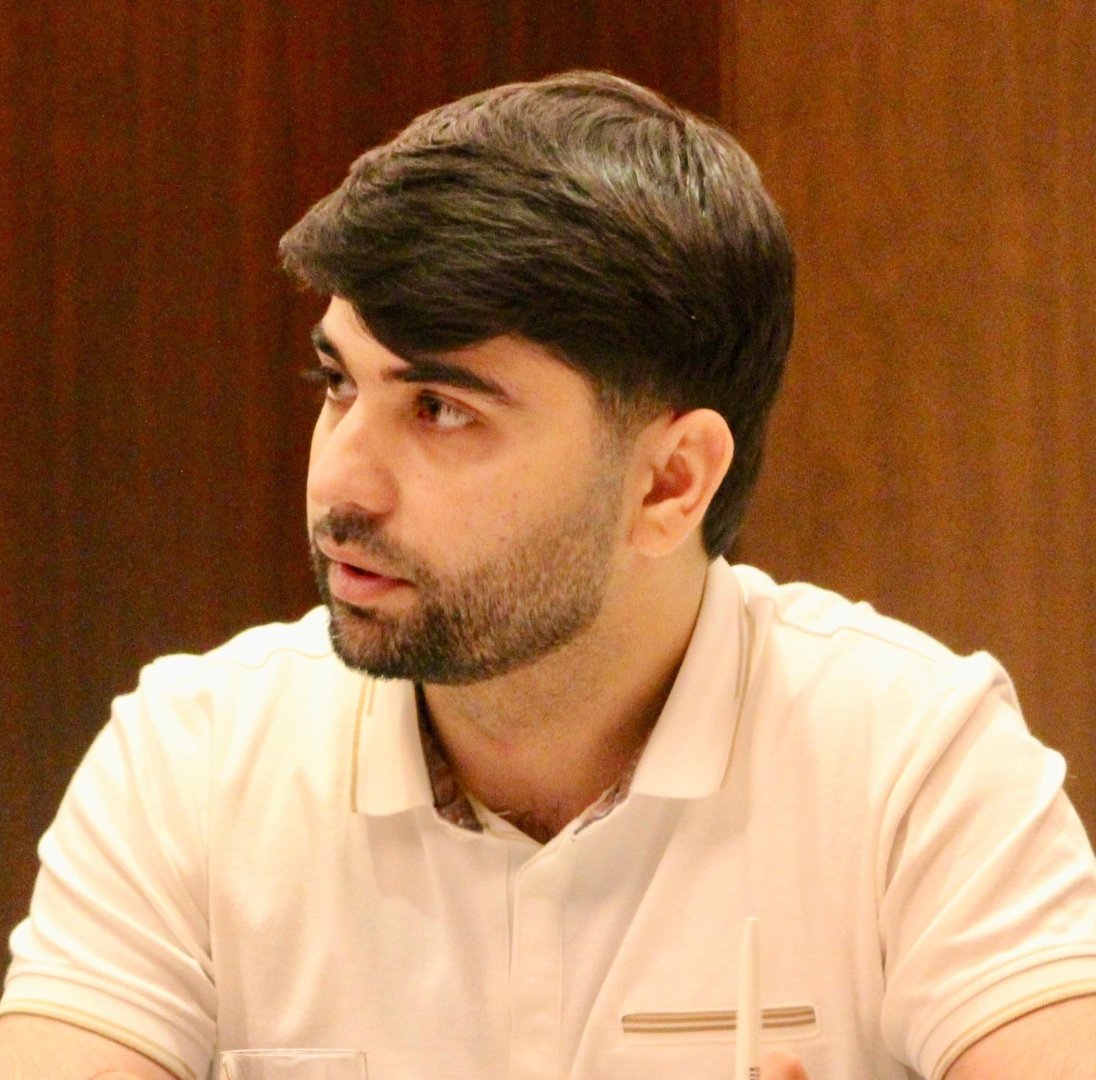BAKU, Azerbaijan, May 13. Kestutis Jankauskas, the EU Ambassador to Kazakhstan, informed Trend in an exclusive interview that the coordination platform for the Trans-Caspian International Transport Route (TITR, or Middle Corridor) will launch soon.
"Trans-Caspian International Transport Route allows freight to pass sanctions-free countries between Europe, Central Asia, the EU, and China. Its infrastructure will increase, making deliveries faster than the sea route. Last year, the European Bank for Reconstruction and Development introduced an EU-funded study on Middle Corridor hard and soft bottlenecks. The EU convened a Corridor investment forum in Brussels in January 2024 for all countries and potential funders. Infrastructure improvements were promised 10 billion euros. A TITR coordination platform will soon unite all route players," he said.
According to the ambassador, for the Middle Corridor to function properly and offer a viable alternative transportation route, all countries along it should work together, enabling smooth shipment procedures. That involves not only countries in Central Asia, but also Azerbaijan, Georgia, Armenia, and Türkiye.
Jankauskas also noted that Kazakhstan is at the crossroads between Europe, Asia, the European Union, and China.
"Kazakhstan is nestled between Europe, Asia, and China. Most China-EU land cargo passes through Kazakhstan. Much of this trade moved through Russia via the Northern Route for decades. After Russia invaded Ukraine and the EU imposed sanctions, some corporations have moved their logistic activities out of sanctioned countries. Trans-Caspian International Transport Route development accelerated. This approach allows EU-Central Asia trade and speedier cargo transit between China and Europe than via water," Jankauskas said.
As the ambassador pointed out, according to several studies, there is a huge potential to at least triple the traffic through this corridor by 2030.
"This would help to better connect Kazakhstan to the global economy and contribute to economic growth in the region. Kazakhstan is working on several projects simultaneously to provide better services along the Middle Corridor," he noted.
Speaking about energy cooperation between Kazakhstan and the EU, the ambassador noted that Kazakhstan has been an energy partner of the EU for decades, currently supplying over 8 percent of the EU’s oil consumption.
"This became even more important after Russian oil stopped coming to the EU market. The majority of that oil flows via CPC pipeline, and the EU exempted oil not originating from Russia from its sanctions. Kazakhstan is trying to diversify its oil supplies to Europe and world markets. One of the ways is to ship it via the Caspian Sea and Azerbaijan. The amount of Trans-Caspian oil transit has been growing during the last two years, but its amount is limited due to the lack of port and shipping infrastructure. Developing and having alternative export routes is always important," the ambassador said.
Jankauskas noted that the EU is interested in expanding cooperation with Kazakhstan in the field of renewable energy sources.
"As the EU moves away from fossil fuels, we want to work with Kazakhstan on renewable energy and green technologies. Kazakhstan is abundant in solar and wind power. So far, it has implemented certain renewable power producing facilities with European investors," he said.
According to the ambassador, one of the largest is the German-Swedish SVEVIND project to produce green hydrogen in the Western Mangystau region of Kazakhstan.
"Within two years, it will supply Kazakhstan with green hydrogen to boost its global competitiveness and send green energy to Europe. So, project success depends on the Trans-Caspian corridor," Jankauskas noted.
He pointed out that European companies are also successfully developing renewable wind or solar projects in Kazakhstan.
"The Team Europe Initiative on Water, Energy and Climate, which bundles activities from Member States and the EU in Central Asia, will start its implementation with a first 20 million euro program and support regional energy cooperation and grid development. Our experience in Europe shows that such cooperation will stimulate the green transition and the reduction of emissions," he added.
Speaking in general about current and possible areas of cooperation, the ambassador noted that the EU-Kazakh Enhanced Partnership and Cooperation Agreement provides a legal base for cooperation in 29 areas.
"Over the last several years, trade cooperation between the EU and Kazakhstan has been growing. While energy, including renewables, remains the largest area of cooperation, there is a growing potential for cooperation in the area of critical raw materials, as provided by the bilateral memorandum signed in November 2022," he said.
According to the ambassador, agriculture and water management offer good investment opportunities.
"Development of the Trans-Caspian International Transport Route is expected to attract cargo flows from all the countries of Central Asia and to provide not only for transit but also for transport and logistic hub development. The advancement of aviation will enable better people-to-people contacts in business, education, and tourism. Our Digital Satellite Connectivity Project will provide alternative connectivity and better internet to remote villages," he noted.
Jankauskas pointed out that the EU and Kazakhstan established diplomatic relations 31 years ago, and since then, the sides have been developing mutually beneficial partnerships. Over the years, the EU has become Kazakhstan’s largest trading partner and the biggest investor in the country.
"In 2007, the European Union adopted its first strategy on Central Asia, which was updated in 2019. Both the EU and Central Asia share strong common interests in prosperity, connectivity, energy, and security. Kazakhstan was the first country in Central Asia to sign a new generation Enhanced Partnership and Cooperation Agreement (EPCA) with the European Union in 2015. It has been fully in force since 2020 and provides a legal base for deepening and widening cooperation in 29 areas of political, social, and economic life," he said.
Jankauskas noted that during the past three decades, the EU has implemented a variety of projects to advance our mutual relations as well as the security and stability of the countries in Central Asia: border management, rule of law, fight against smuggling, water management, green transformation, energy efficiency, promotion of interregional trade and trade with the EU, SMEs, education, strengthening resilience, and human capital development.






